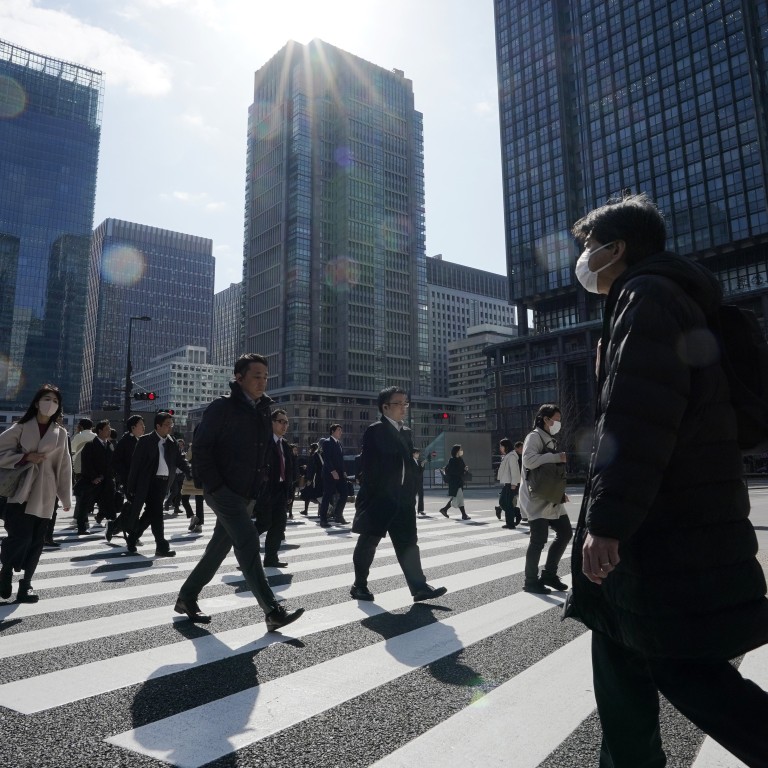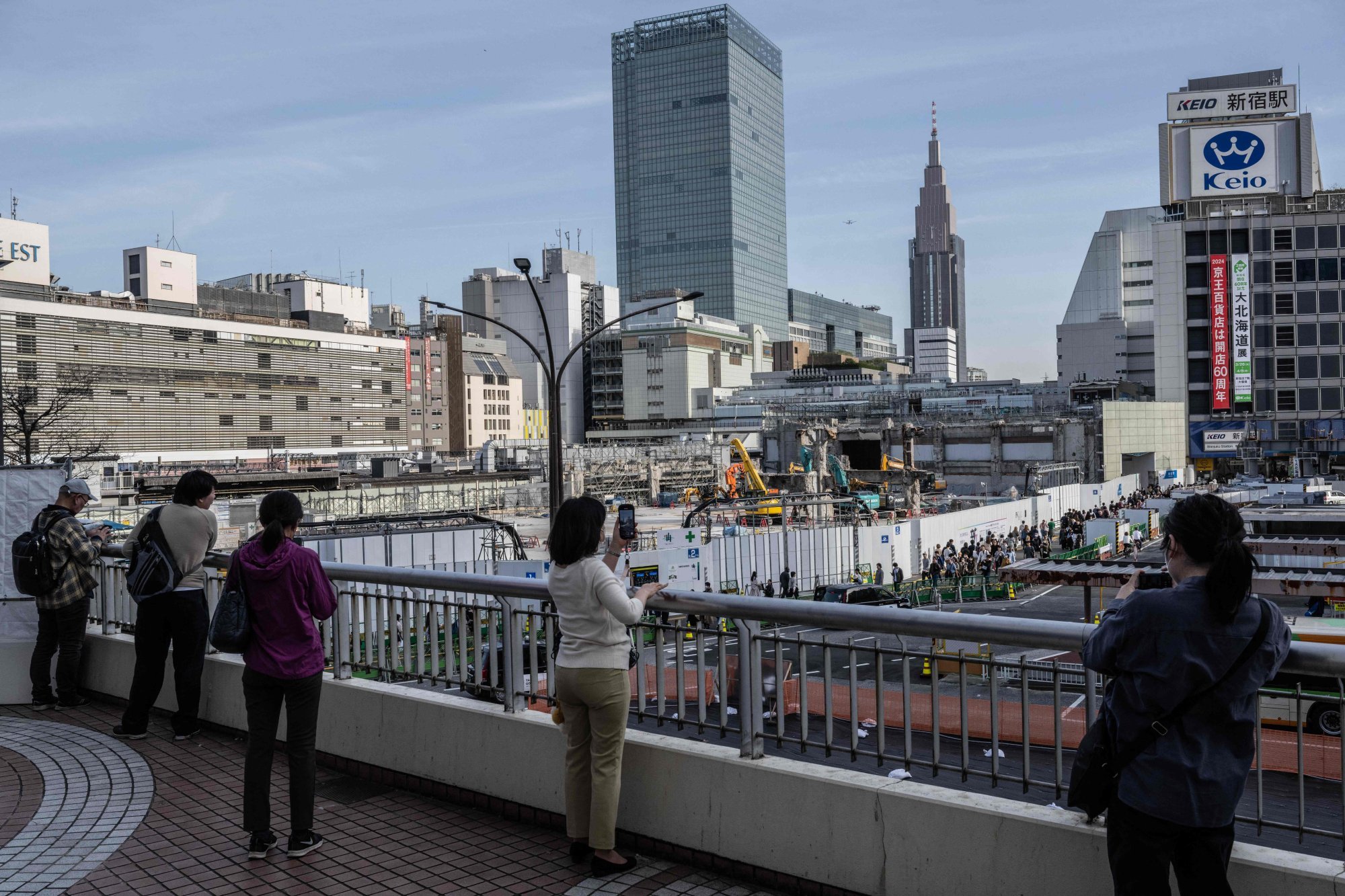
Commercial property: Japan gains upper hand in attracting foreign investment as China’s uncertain outlook deters capital
- End of negative interest rates in Japan unlikely to discourage foreign investors from commercial real estate investments: analysts
- ‘Foreign investor appetite could not be stronger for Japan at the moment,’ JLL analyst says
Last month the Bank of Japan (BOJ) wound up its eight-year policy of negative interest rates, which had been put in place to encourage consumption and boost investment. The BOJ pegged rates to between 0 and 0.1 per cent and signalled a potential rate hike if consumer prices continue to firm up.
Meanwhile, China’s central bank has been on an easing trajectory, with its latest decision in February cutting 25 basis points from banks’ five-year loan prime rate (LPR), the largest shave since the LPR was designated as the main rate benchmark in 2019.

“From the commercial real estate perspective, the appetite is quite a tale of two countries: foreign investors continue to look for opportunities in Japan but remain very silent when it comes to China,” said Henry Chin, global head of investor, thought leadership and head of research for Asia-Pacific at CBRE.
Flows of foreign money into commercial property reflect the shift from China to Japan.
In 2019, foreign investment in Chinese commercial real estate reached US$12.3 billion, almost double the US$6.2 billion invested in Japan, according to CBRE’s tracking of all transactions worth US$10 million or greater. By 2021, this gap had narrowed, with China getting US$10.1 billion and Japan US$6.5 billion. In 2022, the two countries received roughly equal foreign investment, US$8 billion for China and US$7.7 billion for Japan. Last year, the tables turned, with Japan taking in US$5 billion and China getting just US$3.2 billion.
China’s share of total foreign investment in property declined from 38 per cent in 2019 to just 8 per cent last year, while Japan’s has been relatively steady at 21 per cent in 2019 and 17 per cent in 2023, according to data cited by JLL.
“Foreign investor appetite could not be stronger for Japan at the moment,” said Pamela Ambler, head of investor intelligence for Asia-Pacific at JLL. “Despite the recent BOJ announcement, Japan is still the only market with accretive cash-on-cash returns. In fact, monetary policy may drive domestics to look overseas, opening up opportunities for foreign investors to enter the market.”
Japan slips to world’s fourth-largest economy, behind US, China and Germany
Hong Kong-based private equity fund Axe Management Partners is one investor making a major bet on Japan’s commercial property prospects. In March, it completed an acquisition of three hotels in Osaka for 10.7 billion yen (US$71 million).
Currently known as WBF Honmachi, WBF Kitasemba East and WBF Kitasemba West, the hotels have a total of 500 rooms. They are slated to relaunch in the last quarter of the year as part of Garner hotels, a brand under UK-headquartered IHG Hotels & Resorts. They will be the midscale brand’s first hotels outside North America.
“It’s very easy to see that this is an attractive market,” said Gary Kwok, founder and CEO at Axe Management. “In terms of the interest rates, it has a positive carry, and that obviously attracted a lot of the foreign capital looking for a positive yield. And in our view one of the key asset classes is hospitality.”
Axe Management, which has earmarked more than US$85 million for the acquisition and renovation, is aiming for a return of as much as 20 per cent on the investment, Kwok said.
Hong Kong, mainland China office-leasing outlook bleak, CBRE says
As for China, opportunities are still present, especially with a number of distressed assets available in the market, said Sam Lau, Axe Management’s founder and managing partner.
“The market is very huge, and China is a place that we can never ignore,” he said. However, the company is being more selective about investments there, he added, looking into hotels, retail and student housing in first-tier cities but avoiding residential properties and offices.
Both Chin of CBRE and Ambler of JLL forecast continued strength in the Japanese commercial property market.
“Japan has strong fundamentals with its strong, stable and transparent economy,” Ambler said. “The yen is also depreciated against major currencies such as the US and Singapore dollars and has interest rate differentials to other countries, which leads to favoured lending terms and yield differences. There are also clear exits in Japan, and it is also a relatively more liquid market.”
Foreign investors, meanwhile, are likely to have a limited appetite for China for some time, Chin said.
China property: rate of decline in investment slows, official statistics show
“Japan and mainland China are in different cycles when it comes to commercial real estate,” he said. “We continue to see the growth in Japan while China is currently going through repricing with limited leasing demand.
“The Japanese economy continues to outperform, as the country has experienced real wage growth … However, the Chinese economy faces challenges while the unemployment rate continues to be on the high side.”

